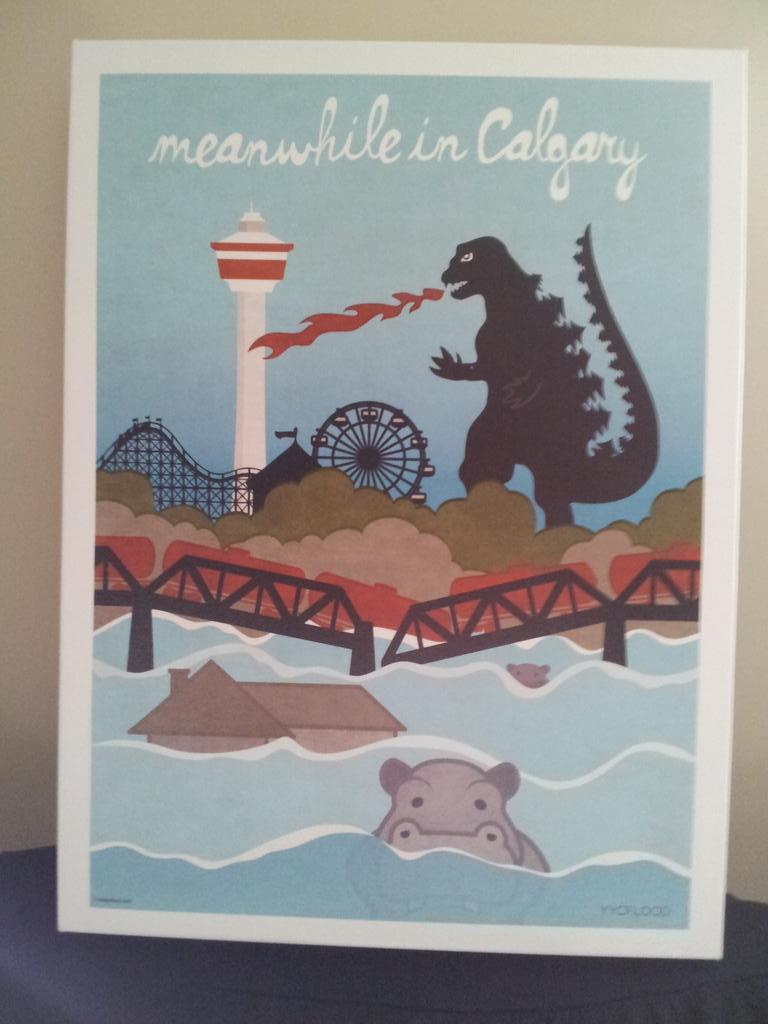Vaughan, a former journalist, former city councilor and current MP for Trinity Spadina believes that Terri Chu has helped develop one of the most important forums for political dialogue in Toronto.
I'd quibble a bit with his wording - to me, Terri has
founded and
led the development of
Why Should I Care. She's strategically grown the operation, attracting more talent, top-billed speakers (who get nothing more than a potted plant as compensation) and is even launching spin-off events.

Where Vaughan and I clearly agree, though, is in our knowledge that Terri Chu is a leader who makes things happen.
WSIC's tagline is "get informed, get engaged and make a difference." It's not about telling people what to believe, but empowering them with the knowledge they need to make informed choices.
Terri, through her WSIC work, personal interest, life and work experience is pretty damned informed, and getting more so every day. She can dive into the weeds on wastewater infrastructure and watershed management with the pros; Terri can chat youth employment strategies and the impact of social stigmas, without sounding a tenth as jargon-y as I do.
Vaughan has opted not to outright endorse a candidate in this race, as is his choice. When asked for an endorsement, Morgan Baskin similarly said she didn't want to appear functionally biased, as she will have to work with whoever joins council should she become mayor. That's a noble position to take.
Instead, she approved a couple of quotes that underline her admiration for who Terri is and what Terri stands for:
Like Vaughan's quote, these aren't attempts to pressure Ward 20 voters to cast their vote one way or another; these are all endorsements of Terri Chu as the community leader she assuredly is. They're tools to help voters get informed about the character and accomplishments of one of their candidates.
Vaughan hasn't asked for his quote not to be used, which is generally what someone who feels their words are being abused does. Whatever people want to read in to that is their own business.
For those candidates who seem so really hung up on being seen as "the liberal" candidate, I might suggest that:
1) they recognize there are no parties at City Hall, and we want to keep it that way
2) instead of bitching about someone else's endorsement, why not ask for one yourself? If you can't ask for support during an election, how could you ask for project support as a councilor?
3) a functional fixedness on your brand and flashy baubles implies all blood is flowing to the candidate, not to the community. Leaders don't put themselves first - they put constituents first.
Leaders understand politics isn't about position, it's about people.

Leaders
engage with people; they don't preach to them. That means dialogue.
Leadership also means acting upon the best interests of your constituents, when you have properly engaged with them and know what they need (first) and want (second) in the broader context of city planning.
What they want is rarely a risqué headline.
Ward 20 doesn't need a representative that sees City Hall as a green room for a jump to another level of politics, nor a councilor whose greatest strength is the ability to draw attention to themselves. Ward 20 needs a councilor who is committed to understanding local needs and acting on them, full stop.
It's not my place to tell anyone who to vote for, but I will say this - I believe Terri Chu is exactly the kind of leader we need more of, at every level.
But don't just take my word, nor Vaughan's, nor Baskins' - this is your choice, and it's an important one.
To learn more about why we believe in Terri Chu as a leader, visit her website
here. Ask her a question when you see her at your door, or at an event, or during a debate. Then decide if the leadership qualities that inspire us are the ones you'd like to see in your next councilor.
Get informed, get engaged, then make your choice - Terri wouldn't want it any other way.







